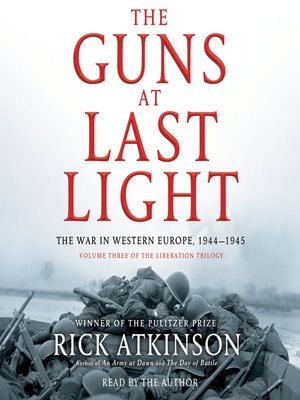

“I shall never be able to forgive myself,” Patch wrote.

Two months later, glory morphed into despair when his son was killed while serving under his command. “God protect me from being spoiled by it.” Those words proved too prophetic. “This temporary notoriety will soon die out,” he assured his wife in September 1944. Alexander Patch’s exploits as commander of the Seventh Army in France were celebrated across America. He looks older now than at any time since I have been with him.’ The supreme commander was fifty-three.Gerard DeGroot is a professor of modern history at the University of St Andrews in Scotland and the author of “The Bomb: A Life.” ‘Ike looks worn and tired,’ his Naval aide, Commander Harry C. He also suffered from high blood pressure, headaches and ringing in one ear he had even begun placing hot compresses on his inflamed eyes. In these fraught times he often smoked eighty Camels a day, aggravating the throat and respiratory infections that plagued him all spring. “…Eisenhower sped southwest through London in his chauffeured Cadillac, drawing deeply on a cigarette. To give potential readers a sample of Atkinson the historian, I offer two early paragraphs of his words about Eisenhower. Eisenhower tends to shine through - a judgment, sure, but an amply documented judgment. Atkinson’s respect and affection for supreme Allied commander Dwight D. Mostly, though, he wants to illuminate the actual battles and the behind-the-scenes strategies, rather than issue judgments. Soon, if not already, Atkinson will show up on the list of giants, as later historians stand on his shoulders.Ītkinson has formed opinions, naturally, about capable generals and less-capable generals, about the fitness factors of entire national military forces. Atkinson knows that to some extent he is standing on the shoulders of giants I have read an interview with him during which he mentions Cornelius Ryan, Mark Stoler and Antony Beevor as among the WWII historians he admires. Volume two, The Day of Battle, covers the war in Italy and Sicily, 1943-1944. Volume one of the trilogy, An Army at Dawn, covers the war in North Africa, 1942-1943. His book about the West Point class of 1966 ( The Long Gray Line) is a classic of long-form narrative journalism. troops in the Persian Gulf War are strong. Atkinson honed his skills writing about the military by starting with war/peace conundrums more current than World War II. He holds a master's degree in English literature, not history, and he learned to write for the masses in newspaper newsrooms - in Pittsburg, Kan. Army officer and grew up on military bases. Born after World War II, Atkinson is the son of a U.S. The uniqueness of Atkinson's trilogy is grounded in his personal and professional backgrounds.


 0 kommentar(er)
0 kommentar(er)
